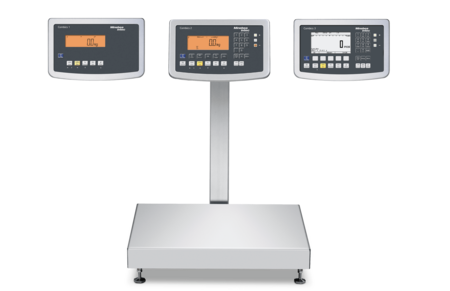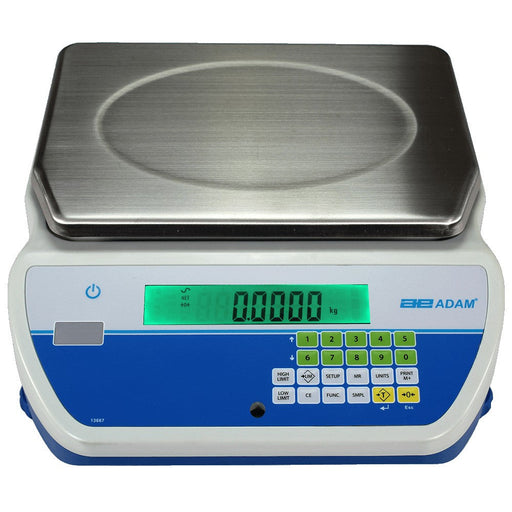The Essential Guide to Choosing the Right Industrial Scales for Your Needs
The Essential Guide to Choosing the Right Industrial Scales for Your Needs
Blog Article
Exactly How Industrial Scales Job: An Extensive Summary for New Users
Understanding the mechanics behind industrial ranges is essential for new users who desire to make certain precision in their dimensions. As we explore these elements, one need to think about how these components communicate to enhance efficiency in diverse commercial applications.
Essentials of Industrial Scales
Industrial ranges are necessary devices used across numerous markets, including production, logistics, and farming, to make certain exact weight dimensions of heavy loads. The basic principle behind commercial scales entails the conversion of weight right into a measurable kind that can be presented digitally or analogically. These ranges use numerous mechanisms, such as tons cells or mechanical levers, to determine the weight of objects positioned upon them.

Along with their measurement capacities, commercial ranges are created to endure severe atmospheres, featuring robust construction that resists dirt, moisture, and heavy effects. Calibration and maintenance are vital to ensure accuracy, as also small inconsistencies can cause substantial monetary implications. By recognizing the fundamentals of commercial ranges, customers can value their significance in numerous commercial applications.
Kinds of Industrial Scales
Numerous sorts of commercial scales deal with the diverse demands of different markets, each developed to manage specific weighing jobs with precision and integrity. Among the most typical types are floor scales, which are excellent for evaluating heavy and large items. These ranges generally feature big platforms and can accommodate palletized products, making them important in stockrooms and delivery centers.
An additional type is bench ranges, which are typically used for smaller things in production and retail setups. They supply accurate measurements for items that require precision, such as chemicals or components in production line (Industrial Scales). For mobile operations, mobile ranges use flexibility and ease of transport, suitable for fieldwork or temporary installments
Additionally, specialized ranges like checkweighers are made use of in manufacturing lines to keep high quality control by making sure that items satisfy weight specs. Each type of commercial range plays an essential duty in boosting operational efficiency and precision across various sectors.
Just How Considering Devices Job
Evaluating mechanisms are important components that make it possible for precise measurement of mass across various commercial scales. These devices use various principles of physics and design to supply accurate weight analyses, crucial for stock management, top quality control, and compliance with regulatory criteria.
One typical sort of evaluating mechanism is the lots cell, which operates the concept of stress gauges. When a lots is applied, the lots cell warps a little, producing an electrical signal proportional to the weight. This signal is then exchanged a readable weight dimension by the scale's electronic devices.
An additional extensively utilized mechanism is the mechanical balance, which uses a system of weights and bars. Industrial Scales. This approach counts on the concept of stability, where the weight of the object being gauged is balanced versus recognized weights, permitting straight dimension
Additionally, pneumatic and hydraulic scales take advantage of fluid characteristics concepts to gauge weight. These systems use the pressure applied by a tons to figure out weight, using high accuracy for enormous lots.
Proper Usage Methods
When making use of industrial scales, sticking to correct usage techniques is vital for keeping and guaranteeing accurate measurements devices stability. It is necessary to pick the ideal range for your specific application, as scales vary in capacity and accuracy.
Prior to evaluating, make certain that the scale is put on a steady, level surface complimentary from resonances or disruptions. This will help to decrease errors triggered by outside aspects. Furthermore, calibrate the range according to the manufacturer's requirements prior to use, ensuring that it is working correctly.
When positioning items on the scale, disperse the weight equally to avoid tipping or damaging the devices. Constantly permit the range to maintain prior to tape-recording the weight, as fluctuations might take place throughout initial placement. For bulk products, utilize containers that are suitable for the scale dimension to avoid overloading.
In addition, stay clear of positioning cold or extremely hot items straight on the scale, as temperature variants can affect precision. Keep the evaluating platform cost-free and clean of particles to avoid contamination and make certain trustworthy results. By complying with these techniques, individuals can maximize the efficiency and long life of their industrial ranges.
Maintenance and Calibration Tips
Making sure the longevity and precision of commercial scales needs diligent maintenance and normal calibration. A preventive upkeep timetable is important; it needs to include routine examinations to identify deterioration, especially on tons cells and various other sensitive parts. Frequently cleansing the range's surface and making sure the bordering location is devoid of debris will certainly assist keep its honesty and performance.
Calibration is similarly necessary and ought to be executed at routine check periods or whenever the range experiences substantial changes in temperature level, humidity, or physical variation. see it here Utilize qualified calibration weights that are deducible to national criteria for accuracy. Paper each calibration session carefully to track performance with time and determine any type of patterns or recurring issues.
In addition, bear in mind the scale's environment. Prevent placing it near resources of vibration, electromagnetic interference, or extreme temperatures, as these aspects can negatively affect dimensions. Finally, train all drivers on correct range usage and upkeep protocols to ensure regular performance and accuracy. By adhering to these maintenance and calibration tips, customers can boost the integrity of their industrial scales, making sure optimum procedure in any setup.
Final Thought

Comprehending the mechanics behind industrial ranges is crucial for brand-new customers that desire to make sure precision in their measurements.Industrial scales are crucial tools made use of across different fields, including production, logistics, and agriculture, to guarantee accurate weight measurements of hefty lots. The essential principle behind industrial ranges entails the conversion of weight right into a measurable form that can be presented electronically or analogically. By comprehending the basics of commercial ranges, individuals can appreciate their relevance in numerous industrial applications.
In verdict, comprehending the operation and upkeep of commercial scales is crucial for making you can try this out certain accurate weight dimensions in different applications. (Industrial Scales)
Report this page